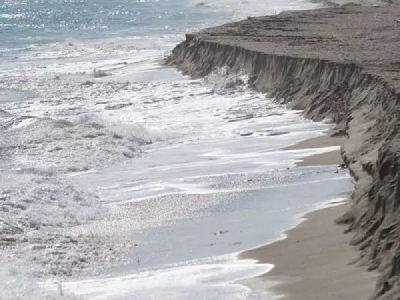
Posted on January 26, 2017
By Lisa Broadt, TCPalm
The Treasure Coast this year will take a second shot at changing federal law so Florida communities can buy sand from the Bahamas.
Doing so could provide a solution for rapidly eroding Florida beaches and could help protect the Treasure Coast’s sand, which has been eyed by Miami-Dade County, where sand reserves are depleted.
Earlier this month, sand advocates saw a partial victory with passage of the Water Resources Development Act of 2016, St. Lucie County Legislative Affairs Manager Nicole Fogarty told the Treasure Coast Regional Planning Council on Friday.
The law allows the study of purchasing sand from foreign countries. For Florida, that country likely would be the Bahamas, Fogarty said.
However, the bill had been stripped of an amendment crafted by U.S. Rep. Lois Frankel, D-West Palm Beach, which would have allowed buying sand, not just exploring the possibility of buying sand, needed to replenish shorelines.
“This is particularly important for Dade and Broward counties, who want to acquire sand from the Bahamas,” Frankel said about the removed amendment, in a news release. “Those counties have depleted their usable sand offshore and are now forced to truck in sand at high costs or fight with northern counties over their offshore sand.”
The final Water Resources Development Act did not include that amendment, Fogarty told the planning council Friday.
Fogarty, as well as Indian River County Attorney Kate Cotner, on Friday asked elected officials to join the effort to encourage lawmakers in Washington to revisit the amendment.
Though the plan to ship sand south would affect only Palm Beach, Martin and St. Lucie counties, Indian River County has joined the fight because sand is a regional issue on which the Treasure Coast needs to work together, Cotner said.
Indian River County Commissioner Peter O’Bryan, a member of the regional planning council, said Indian River’s beaches were significantly affected by Hurricane Matthew in October.
Current federal policy bars the purchase of foreign sand unless economic or environmental factors make using domestic sand impossible.
Frankel has called the policy a “very, very outdated law,” particularly considering the amount of erosion Florida beaches have suffered from several major hurricanes.
In a discussion Friday about how to proceed, Martin County Commissioner Doug Smith asked whether the Treasure Coast had been in touch with the Bahamas to enlist the country’s help.
Allowing the Bahamas to do the actual dredging — proving to the country that U.S. companies would be “no threat” to its dredging industry — might encourage the country to be cooperative in the fight, Smith said.
Smith encouraged Fogarty and Cotner to come back to the planning council with additional directive on what to do next.
BY THE NUMBERS
MIAMI-DADE COUNTY
17: Miles of critically eroded beaches
0: Cubic yards of available sand
3.6 million: Cubic yards of sand needed to meet planned federal erosion and hurricane-control projects
23 million: Cubic yards of sand needed over the next 50 years
$14.7 billion: Estimated value of the county’s waterfront property, excluding infrastructure
MARTIN COUNTY
21: Miles of beaches
18: Miles of critically eroded beaches
384,000: Cubic yards of sand dredged and used to renourish 8,100 feet of beach during the county’s most recent project
ST. LUCIE COUNTY
21: Miles of beaches
7: Miles of critically eroded beaches
INDIAN RIVER COUNTY
22: Miles of beaches
16: Miles of critically eroded beaches
2.2 million: Cubic yards of sand placed on county beaches over the past 15 years
Sources: Martin, St. Lucie and Indian River counties; World Resources Institute; U.S. Army Corps of Engineers
Source: TCPalm





